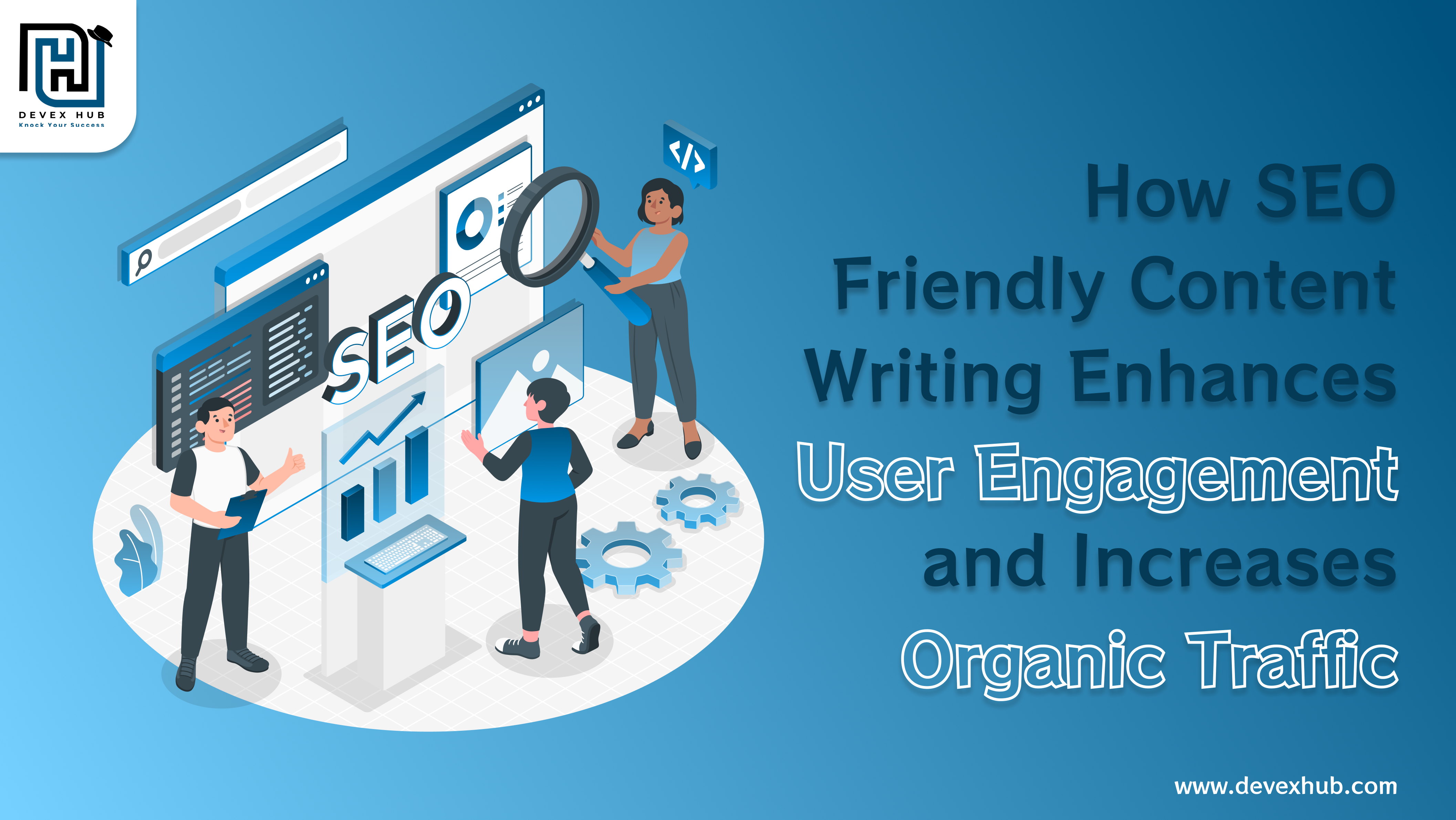Digital Marketing for Real Estate in India: Why You Need the Right Company
.jpg)
The Indian real estate market has seen significant changes due to rapid urban growth, increasing incomes, and a growing middle class. To attract today’s savvy buyers, real estate businesses need innovative marketing strategies. Digital marketing has become a powerful way to connect real estate companies with potential clients, helping businesses grow and succeed. However, the Indian market is unique and requires a thoughtful and tailored approach to be truly effective.
Real estate businesses in India face many challenges, such as strong competition, different customer needs, and a fast-changing digital world. To tackle these issues, it’s essential to work with a specialized digital marketing company. These agencies have the skills, tools, and knowledge needed to understand the Indian market and deliver real results for real estate businesses.
In this guide, we’ll explore the key aspects of digital marketing for real estate in India. We’ll look at the main channels, the importance of choosing the right digital marketing company in India, and the strategies that can lead to success. By the end of this article, you’ll have a clear understanding of how digital marketing can help your real estate business grow and succeed.
Understanding the Indian Real Estate Market
The Indian real estate market is a complex mix of different regions, economic situations, and consumer behaviors. To create successful digital marketing for real estate strategies, it's essential to deeply understand this diverse market.
[1]. Regional Dynamics: India’s real estate landscape varies greatly from one region to another. For example, Tier-I cities like Mumbai, Delhi, and Bangalore have a mature real estate market with tech-savvy residents. On the other hand, Tier-II and Tier-III cities are experiencing rapid growth, offering unique opportunities for real estate businesses.
- Tier-I Cities: These cities have intense competition, price-sensitive buyers, and a strong preference for well-known developers. Digital marketing is key for standing out and generating leads.
- Tier-II and Tier-III Cities: These areas have a growing middle class, rising disposable incomes, and an increasing demand for affordable housing. In these cities, digital marketing is crucial for building trust and credibility with potential buyers.
[2]. Consumer Behavior: Understanding how different groups of people behave is key to creating the right marketing messages and choosing the best channels. Factors like age, income, job, and lifestyle all affect what kind of property someone might prefer.
- Millennials: This tech-savvy group often prefers doing their research online and is likely to choose rental properties or affordable housing.
- Gen X: They value well-known brands, look for good investment opportunities, and are influenced by recommendations from friends and family.
- Baby Boomers: This group focuses on location, amenities, and resale value. They frequently depend on traditional marketing methods.
[3]. Digital Landscape: India’s digital landscape is changing fast, with more people getting access to the internet and smartphones. However, differences between urban and rural areas still exist.
- Urban Centers: These areas have high internet access, active social media users, and a lot of online property searches.
- Rural Areas: While internet connectivity is growing, many people still depend on traditional media.
Core Digital Marketing Channels for Real Estate in India
To effectively reach the target audience, real estate businesses must leverage a combination of digital marketing channels.
#1. Search Engine Optimization (SEO)
SEO is the foundation of a powerful online presence. By optimizing website content and structure for relevant keywords, real estate businesses can improve visibility in search engine results.
- Keyword research: Identify high-impact keywords and phrases related to property types, locations, and buyer intent.
- On-page optimization: Enhance website content by improving titles, meta descriptions, header tags, and image alt text.
- Local SEO: Focus on location-specific keywords and optimize Google My Business listings.
#2. Pay-Per-Click (PPC) Advertising
PPC advertising offers a fast-track approach to reaching potential customers. By bidding on relevant keywords, real estate businesses can display ads at the top of search engine results.
- Ad creation: Craft persuasive ad content that emphasizes your unique selling points and incorporates powerful calls to action.
- Landing page optimization: Create dedicated landing pages with clear and concise information, strong calls to action, and relevant images.
- Bid management: Continuously monitor and adjust bids to maximize ROI.
#3. Social Media Marketing
Social media platforms offer a valuable opportunity to engage with the target audience, build brand awareness, and generate leads.
- Platform selection: Choose platforms that align with the target audience's preferences (e.g., Facebook, Instagram, LinkedIn).
- Content creation: Develop high-quality visual content, such as property images, videos, and infographics.
- Community engagement: Connect with followers, reply to comments, and foster relationships.
#4. Email Marketing
Email marketing is an effective tool for nurturing leads and strengthening customer relationships.
- List building: Employ a variety of tactics to grow your email list, such as website pop-ups, lead magnets, and social media contests.
- Segmentation: Divide your email list into segments based on demographics, preferences, property interests, and buyer journey stages.
- Automation: Utilize email automation to send timely and relevant messages based on subscriber behavior.
#5. Content Marketing
Content marketing helps establish your real estate business as an authority in the market and attract potential customers.
- Content creation: Develop high-quality blog posts, articles, videos, and infographics that address the needs and interests of your target audience.
- Keyword optimization: Integrate relevant keywords into your content to boost your search engine visibility.
- Content distribution: Share your content on social media, industry forums, and relevant online communities.
The Importance of Choosing the Right Digital Marketing Company in India
Selecting the ideal digital marketing partner is paramount for real estate businesses seeking to thrive in the competitive Indian market. A strategic alliance with the right agency can amplify your marketing efforts, drive lead generation, and ultimately boost sales.
[1]. Key Qualities of a Successful Real Estate Digital Marketing Company in India
To be successful, a digital marketing company in India for real estate needs a mix of expertise, creativity, and a strong focus on data. Here are the essential qualities to seek:
- Deep Understanding of the Real Estate Industry: The company should have a solid grasp of the Indian real estate market, including how consumers behave, the level of competition, and the regulatory environment.
- Proven Track Record: Look for a company with a history of successful campaigns in real estate. This shows they can deliver real results.
- Data-Driven Approach: The company should rely on analytics to make decisions and improve campaigns. Data helps in tracking progress and making informed choices.
- Full-Service Capabilities: A successful company offers a range of services, such as SEO, PPC, social media, content marketing, and email marketing.
- Technology Proficiency: They should be skilled in using the latest digital tools and technologies to stay ahead in the market.
[2]. Understanding the Indian Market and Cultural Nuances
A successful digital marketing company must understand Indian culture, values, and consumer behavior. Key aspects include:
- Cultural Sensitivity: Campaigns should include cultural elements that resonate with the target audience.
- Language Proficiency: The ability to communicate effectively in multiple Indian languages helps reach a wider audience.
- Festive Occasions: Major Indian festivals offer great opportunities for targeted marketing campaigns.
- Building Trust: It’s essential to establish credibility through clear communication and ethical practices.
[3]. Data-Driven Approach and Performance Measurement
A data-driven approach is essential for optimizing marketing efforts and measuring return on investment (ROI). The company should focus on:
- KPI Tracking: Monitoring key metrics like website traffic, lead generation, conversion rates, and social media engagement.
- Data-Driven Insights: Using data to spot trends, improve campaigns, and make smart decisions.
- Regular Reporting: Providing clients with detailed reports on performance.
Challenges and Opportunities in Real Estate Digital Marketing in India
The Indian real estate market is full of potential, but it also comes with unique challenges for digital marketers. However, those who can effectively navigate these challenges will find immense opportunities for growth.
#1. Overcoming Challenges
- Digital Literacy: Many people in India still lack digital skills, making online engagement difficult.
- Solutions: Create user-friendly platforms with clear instructions, and offer offline support to help users navigate online processes.
- Trust and Credibility: Building trust online can be challenging due to issues like fake listings and fraudulent activities.
- Solutions: Be transparent and authentic, and highlight customer testimonials to build credibility.
- Competition: The real estate industry is very competitive, making it hard for businesses to stand out.
- Solutions: Differentiate your offerings, target niche markets, and use data-driven strategies to gain an edge.
#2. Leveraging Opportunities
- Mobile Dominance: With a large number of smartphone users in India, there's a big opportunity for mobile-first marketing.
- Solutions: Develop responsive websites, create content optimized for mobile, and use mobile advertising platforms to reach your audience.
- Video Marketing: Video content is becoming increasingly popular and is a powerful way to tell your story.
- Solutions: Produce engaging property videos, virtual tours, and explainer videos to attract and inform potential buyers.
- Social Media: India's active social media scene offers great opportunities for brand building and customer engagement.
- Solutions: Use platforms like Instagram, Facebook, and YouTube to connect with your audience and promote your properties.
- Data Analytics: Advances in data analytics allow for deeper insights into consumer behavior.
- Solutions: Use data to personalize your marketing campaigns, optimize ad spending, and measure your return on investment (ROI).
#3. Staying Ahead of the Competition
The real estate industry is always changing, so staying proactive in digital marketing is crucial.
- Emerging Technologies: Adopt artificial intelligence (AI) to enhance the customer experience.
- Hyperlocal Focus: Tailor your marketing efforts to specific geographic areas and target local audiences effectively.
- Continuous Learning: Keep up with the latest digital marketing trends and best practices to stay ahead.
- Customer Centricity: Focus on understanding and meeting customer needs to build long-term relationships.
Understanding the Real Estate Buyer Journey
A deep comprehension of the real estate buyer journey is crucial for crafting effective digital marketing for real estate strategies. By mapping out the customer's decision-making process, real estate consultants can tailor their messaging and channels to resonate at each stage.
Stages of the Buyer's Journey
[1]. Awareness Stage: Potential buyers become aware of their need for a property.
- Digital marketing role: Generate awareness through SEO, PPC, and social media.
- Content ideas: Informative blog posts, property market overviews, and industry trends.
[2]. Consideration Stage: Buyers actively research property options and compare alternatives.
- Digital marketing role: Provide valuable content, nurture leads through email marketing, and offer property comparisons.
- Content ideas: Property guides, buyer's checklists, and virtual property tours.
[3]. Decision Stage: Buyers are ready to make a purchase and evaluate different options.
- Digital marketing role: Convert leads into customers through persuasive messaging and targeted offers.
- Content ideas: Case studies, customer testimonials, and limited-time offers.
[4]. Post-Purchase Stage: Customers become homeowners and require ongoing support.
- Digital marketing role: Foster customer loyalty, encourage referrals, and provide post-purchase services.
- Content ideas: Homeownership guides, property maintenance tips, and community engagement initiatives.
Tailoring Digital Marketing Efforts
By understanding the buyer's journey, real estate consultants can tailor their digital marketing efforts to each stage.
- Awareness Stage: Focus on generating brand awareness and building credibility through SEO, social media, and content marketing.
- Consideration Stage: Provide valuable content, nurture leads through email marketing, and use retargeting ads to stay top-of-mind.
- Decision Stage: Offer incentives, personalized recommendations, and clear calls to action to encourage conversions.
- Post-Purchase Stage: Provide excellent customer support, offer additional services, and seek customer feedback.
By aligning digital marketing efforts with the buyer's journey, real estate consultants can enhance customer experience and drive long-term success.
Measuring and Analyzing Digital Marketing Performance
To ensure success in digital marketing, it's essential to measure and analyze your efforts. By tracking key performance indicators (KPIs) and using analytics tools, real estate businesses can gain valuable insights, optimize their campaigns, and maximize their return on investment (ROI).
[1]. Key Performance Indicators (KPIs) for Real Estate
- Website Traffic:
- Track the number of visits to your website, how long visitors stay, and how many leave quickly (bounce rate). This helps you understand how well your website is performing.
- Lead Generation:
- Monitor how many leads you generate from different channels like your website, social media, and email marketing. This shows which channels are most effective.
- Conversion Rates:
- Measure the percentage of website visitors who take the desired action, like filling out a form or making a purchase. Higher conversion rates mean your marketing is working well.
- Customer Acquisition Cost (CAC):
- Calculate how much it costs to acquire a new customer through your digital marketing efforts. Lowering CAC increases your profitability.
- Return on Investment (ROI):
- Compare the revenue generated by your marketing campaigns to the amount spent. A higher ROI indicates more profitable campaigns.
- Social Media Metrics:
- Track engagement (likes, shares, comments), reach, impressions, and follower growth on social media platforms to see how well your content is resonating with your audience.
- Email Marketing Metrics:
- Monitor open rates, click-through rates, and conversion rates in your email campaigns to gauge their effectiveness.
[2]. Tracking Website Traffic and Conversions
- Google Analytics:
- Use Google Analytics to track how many people visit your website, what they do there, and how they move through your site (conversion funnels).
- Goal Setting:
- Set clear goals, like increasing leads or sales, and track your progress toward achieving them.
- Traffic Sources:
- Identify where your website traffic is coming from (e.g., search engines, social media) to focus on the most effective channels.
- Landing Page Optimization:
- Test different versions of landing pages to find the ones that convert best.
[3]. Analyzing Social Media Metrics
- Platform-Specific Analytics:
- Use the built-in analytics tools on social media platforms to measure performance.
- Engagement Metrics:
- Track likes, shares, comments, and mentions to see how your audience is interacting with your content.
- Follower Growth:
- Monitor the growth of your followers and identify what’s driving it.
- Advertising Performance:
- Analyze the performance of social media ads to make improvements and get better results.
[4]. Using Analytics Tools to Optimize Campaigns
- Data-Driven Decision Making:
- Use data from analytics to spot trends and opportunities, helping you make informed decisions.
- A/B Testing:
- Experiment with different marketing elements (like headlines or images) to see which performs best.
- Attribution Modeling:
- Understand the customer journey and assign credit to different marketing efforts that lead to conversions.
- Continuous Optimization:
- Regularly adjust your campaigns based on performance data to improve results over time.
Emerging Trends in Real Estate Digital Marketing
The real estate industry is undergoing rapid digital transformation, with new technologies emerging at a breakneck pace. To stay ahead of the curve, real estate businesses must embrace these trends.
[1]. Chatbots and Artificial Intelligence (AI)
- 24/7 customer support: Implement AI-powered chatbots to answer customer queries and provide information.
- Lead generation: Use chatbots to qualify leads and capture contact information.
- Personalized recommendations: Leverage AI to offer tailored property suggestions based on user preferences.
[2]. Video Marketing
- Engaging storytelling: Create compelling video content to showcase properties, share market insights, and build brand awareness.
- Live streaming: Host live property tours, Q&A sessions, and market updates.
- Social media integration: Utilize platforms like Instagram and TikTok for short-form video content.
[3]. Influencer Marketing
- Brand partnerships: Collaborate with real estate influencers to reach a wider audience.
- Authentic endorsements: Leverage influencer credibility to build trust and credibility.
- Campaign measurement: Track the performance of influencer campaigns to measure ROI.
Conclusion
A well-executed digital marketing strategy is essential for generating leads, building brand awareness, and ultimately driving sales. By investing in digital marketing and embracing emerging technologies, real estate consultants can position themselves as industry leaders and achieve long-term success.
In conclusion, the synergy between a deep understanding of the Indian real estate market and a strategic digital marketing approach is the key to unlocking the full potential of your business.
Want to grow your real estate business? Click here to level up your strategies in digital marketing for real estate with offsite and online consulting from Devex Hub.

.png)
 (1).png)

.png)

Comments
Post a Comment